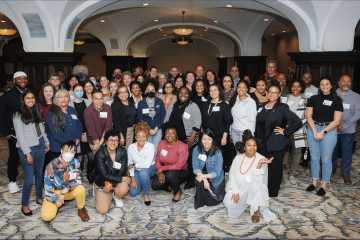The simple truth is that our traditional model of healthcare delivery doesn’t work anymore. It was designed to respond to acute illnesses like polio and typhoid, not to address causes of disease that occur far beyond the clinic walls. No amount of healthcare reform focusing on healthcare financing and organizational inefficiencies can fix the root problem in our medical system.
We Need a Medical Cultural Revolution
There is growing recognition that individual health is nearly inseparable from community health. We need a transformation of American healthcare that recognizes this reality and works to align clinical medicine and public health as partners in a collaborative effort to improve population health.
In the past, many of our triumphs over disease — for example, polio, smallpox, and malaria — have been the result of medical breakthroughs providing clinicians with a new drug to eradicate an illness. As we look at our current healthcare challenges, laboratories no longer offer the possibility for a magic bullet.
There is no treatment, pill, or vaccine to address the lack of fresh fruits and vegetables to support a healthy diet, limited options for physical activity, exposures to environmental toxins, or the disproportionate distribution of alcohol and tobacco advertising and outlets. These are the community-level drivers of the chronic diseases that plague population health and are responsible for much of the healthcare spending in the US.
Health care reforms, including the Patient Accountability and Affordable Care Act, focus on needed changes to healthcare financing and reimbursement as well as increased access to healthcare. These are worthwhile goals, but they will not lead to the transformation needed in American health. Integrating the efforts of public health and clinical medicine will allow us to make the next vital transformation in healthcare to ensure that we have a system that acts upon the undeniable link between the individual and the community.
This post originally appeared in the Huffington Post.




